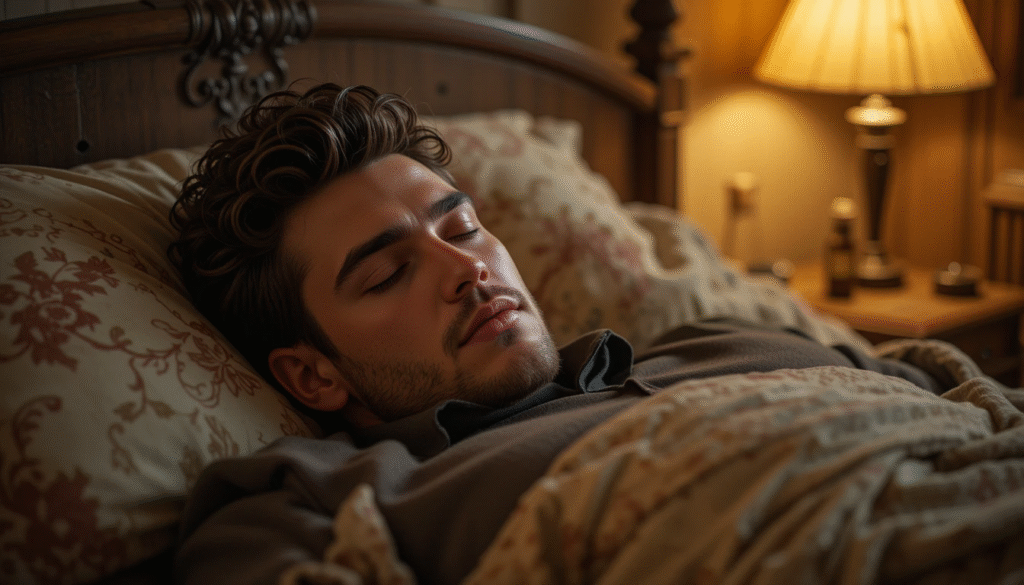You know the feeling — lying in bed, eyes wide open, mind racing, body restless. You’re exhausted but wired. You check the clock. It’s 2:14 AM. Again. If sleep feels more like a struggle than a reset, you’re not alone. But the solution isn’t always in a pill or a new mattress. It might be something much simpler: sleep hygiene. Think of it as the way you prepare for sleep — a quiet ritual that tells your body, “You’re safe. You can rest now.”
Let’s explore how you can build a sleep routine that actually works.
1. Stick to a Consistent Sleep-Wake Cycle
Your body runs on a natural clock called the circadian rhythm. If you’re sleeping at different times every night, it throws that rhythm off balance.
What to do:
- Wake up and go to bed at the same time every day (yes, even weekends)
- Resist the snooze button — it confuses your brain
- Morning light helps reset your internal clock, so get some sun early
Over time, your body will start to expect rest at the same hour — and getting there becomes easier.
2. Unplug an Hour Before Bed
Your phone, tablet, and TV all emit blue light — which tells your brain it’s still daytime. That delays melatonin, the hormone that helps you fall asleep.
Try this instead:
- Dim the lights after dinner
- Swap screen time for reading, journaling, or soft music
- Keep your phone out of arm’s reach when you sleep
This one change alone can help you fall asleep faster and sleep more deeply.
3. Wind Down, Don’t Crash Down
Sleep isn’t an on/off switch — it’s a slow fade. Your body needs a gentle transition from high-energy mode to rest mode.
Build a wind-down routine:
- Light stretching or a warm shower
- Aromatherapy with lavender or chamomile
- Deep breathing or guided relaxation
Think of this as your invitation to rest — a signal that the day is done.

4. Reserve Your Bed for Sleep
If you work, scroll, or snack in bed, your brain stops associating it with rest. That makes it harder to unwind when it’s time to sleep.
Try this:
- Use your bed only for sleep (and intimacy)
- Avoid working or watching movies under the covers
- If you can’t sleep after 20 minutes, leave the room and do something calming — then return when you feel sleepy
Your bed should feel like a sanctuary, not a second office.
5. Keep Your Room Cool, Dark, and Quiet
Your environment matters more than you think. A noisy, bright, or stuffy room can make falling and staying asleep harder.
Make it cozy:
- Set the temperature between 18–21°C (64–70°F)
- Use blackout curtains or an eye mask
- Try white noise or earplugs if your space is loud
Your body loves consistency — especially in your sleep space.
6. Watch What You Eat (and Drink) in the Evening
Caffeine, alcohol, spicy food, or heavy meals can interfere with your ability to drift off or stay asleep.
Better choices:
- Herbal teas like chamomile or lemon balm
- A light snack (like a banana or oatmeal) if you’re hungry
- Finish dinner at least 2–3 hours before bed
Let your digestion wind down before you do.
Final Thoughts
Better sleep isn’t just about feeling less tired — it affects your focus, mood, immune system, and overall quality of life.
With simple shifts in your routine, you can retrain your body to rest well. Not perfectly, but peacefully.
And when you sleep better, everything else gets easier.
FAQs
Q: What time should I go to bed?
Aim for 7–9 hours of sleep. So if you need to be up at 6 AM, bedtime should be around 9–11 PM. The exact time depends on your body and lifestyle.
Q: How long does it take to fix poor sleep hygiene?
Most people see improvements within a week of changing habits. Consistency is key.
Q: Can I catch up on sleep over the weekend?
Not really. Oversleeping on weekends can actually make weekday sleep worse. A steady rhythm works better long-term.
Q: What if I still can’t sleep, even with a good routine?
Sleep issues can be complex. If you’ve made healthy changes and still struggle, consider talking to a doctor or sleep specialist.



